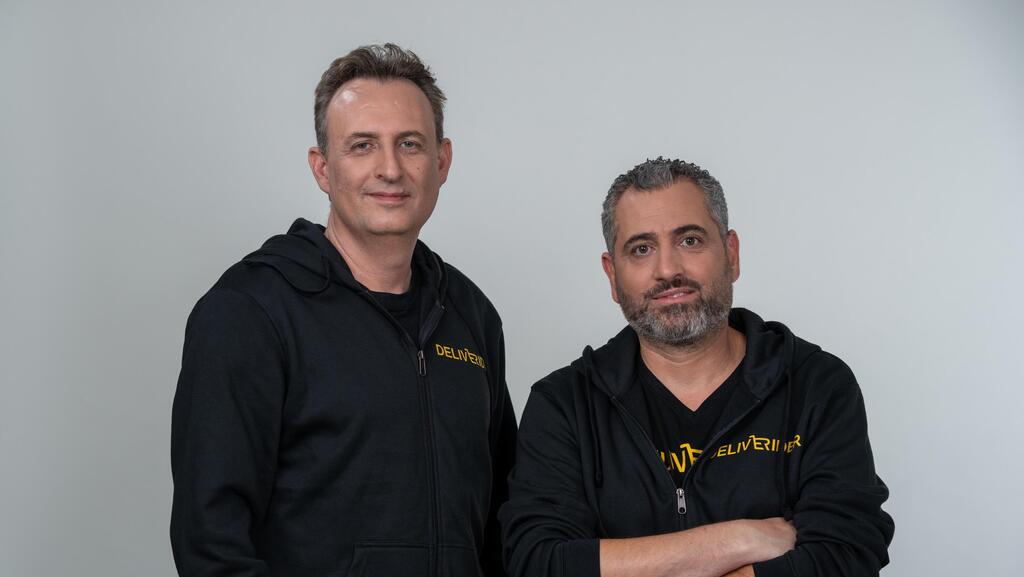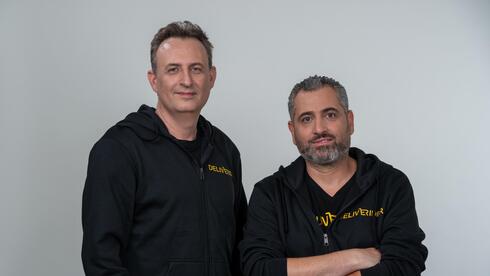
Boarding Pass
From Shufersal to startup: Deliverider receives $2 million for its middle-mile logistics solution
The Israeli startup allows e-commerce companies to offer low-cost-non-inventory products alongside their in-stock selections
“Online retailers are constantly searching for ways to expand their overall basket size while increasing bottom-line profitability. The straight-up solution for this usually involves expanding your offering. The larger your catalog is, the more likely your customers will find what they need,” explained Deliverider Co-Founder and CEO Ido Raz.
According to Raz, the problem is that it usually involves large investments in bigger warehouses or utilizing multiple last-mile deliveries, ‘forcing’ the customer to reach the minimum free shipping threshold from every seller.
“Deliverider’s solution allows online retailers to offer low-cost-non-inventory products alongside in-stock items and have them ride in the same basket without needing costly warehousing and multiple last-mile shipments gaining larger baskets, increasing profitability and leading to happier customers,” he said.
Raz joined CTech for its Startup Boarding Pass series to celebrate its $2 million in funding and share how the solution is set to change the e-commerce game
Company Name: Deliverider
Sector: Retail
Product/Service Description:
Deliverider provides a technology-enabled, middle-mile logistics solution for online retailers. The platform allows e-commerce companies to offer low-cost-non-inventory products alongside their in-stock selection and fulfill it in the same basket, without the need for costly stocking of third-party inventory or multiple last-mile shipments. The solution allows for larger baskets, increased profitability, safeguarding of customer data, a reduced carbon footprint, and happier customers.
Founder Bios:
Ido Raz: Co-Founder and CEO of Deliverider. E-Grocery expert and an experienced entrepreneur, with a proven track record of success in driving bottom-line results and leading transformative initiatives from ideation to implementation. Experienced in initiating new and innovative growth engines, with an emphasis on e-commerce activities, 'middle mile' logistics, big data, and marketing. Former Director of Business Development and Innovation at Shufersal, Israel's largest retailer with over $5 billion in revenue.
Elad Kantor: Entrepreneur & Manager in the R&D department with 15+ years of development and management experience. In-depth knowledge of a wide scope of technologies. Experienced in building and leading development and PM groups, delivering on-time high-quality products that meet market needs.
Year of Founding: 2021
Last Investment Round: $2 million
Last Investment Stage: Seed
Date of Last Investment: August 2022
Total investment to date: $2 million
Investors (leading and all): Millennium Group’s private equity fund and NC Capital.
Current number of employees: 11-50
Open positions: Senior PHP Developer
Website:
Social Media:
https://www.linkedin.com/company/deliverider/
Interview:
How was the idea born?
The idea was born when I served as Director of Innovation and Business Development at Shufersal. I was searching for ways to increase customers’ basket size \[the number of items in their basket and revenue at checkout\] and realized that we generally have only two options. The first is to increase our product offering through a marketplace (forward every order of a third party offering directly to the seller for pick, pack, and delivery to the customer's home - i.e., drop shipping). The second is to build large warehouses with an extensive product offering.
Related articles:
The problem was that the classic marketplace model utilizing dropshipping doesn't work with low-cost products (whose conversion rate is the highest), as selling a $10 item with an $8 shipping price is unsustainable. On the other hand, owning and operating huge warehouses is very expensive, usually unprofitable, and incredibly risky.
This is how the idea to establish Deliverider was born. A hybrid solution that enables online retailers to extend their aisle with third-party inventory while leveraging the existing last-mile delivery operation avoiding additional costs.
What is the need for the product?
Online retailers are constantly searching for ways to expand their overall basket size \[items and revenue\] while increasing bottom-line profitability. The straight-up solution for this usually involves expanding your offering. The larger your catalog is, the more likely your customers will find what they need. The problem is that it usually involves large investments in bigger warehouses or utilizing multiple last-mile deliveries, “forcing” the customer to reach the minimum free shipping threshold from every seller. On the other side, we know that low-cost items are the most suitable extension to the online catalog, as they show the highest conversion rates as add-on items to existing baskets.
Deliverider’s solution allows online retailers to offer low-cost-non-inventory products alongside in-stock items and have them ride in the same basket without needing costly warehousing and multiple last-mile shipments gaining larger baskets, increasing profitability and leading to happier customers.
How is it changing the market?
The market is typically dominated by drop-shipping marketplaces or Quick-Commerce solutions, which usually avoid selling low-cost items due to high delivery costs. Our efficient logistics model lets us focus on those low-cost, high conversion items, adding a new edge to the online offering. Now even a $5 item can be sold online without losing money by riding in the same cart as existing orders, greatly expanding availability and affordability for consumers, enabling profitable fulfillment for retailers, and significantly reducing the environmental footprint of delivery operations.
How big is the market for the product and who are its main customers?
Our main customers are large online retailers, mainly focusing on grocery retailers. The online grocery retail market alone is responsible for approximately $300 billion a year and growing rapidly. Given that our service solves a core issue and has applicability across multiple online markets, given modest basket conversions, our market is worth tens of billions if we’re to estimate conservatively.
Does the product exist already? If not - at what stage is it and when is it expected to hit the market?
Our product is up and running. Right now, we’re completing several POCs that are showing promising results, and we’re exiting stealth to focus on scaling. The product, results, and interest are all there, and it’s up to us to take the next step, which we’re beginning with this funding round.
Who are the main competitors in this sector and how big are they?
As our product is a headless solution designed to work behind the scenes with no interface to the end customer, we can say that our competition is the online retailer's competition – the quick commerce companies that are taking big market share bites from the large retailers. We are actually helping those retailers “fight” the market share battle with more tools in their toolbox.
What is the added value that the founders bring to the company and the product?
As former executives in the e-Grocery market, both founders experienced the pain firsthand and understand the ins and outs of the online retail industry.
What will the money coming in from the round be used for?
The Seed round aims to allow further product development and hiring. The funding will also spur faster adoption of the platform amongst large e-commerce retailers looking to extend their catalog offering, boost online profits, and increase overall basket size by allowing non-inventory items to ride in the same basket as in-stock items at no additional cost.
In the "Startup Boarding Pass" section, CTech will cover the (relatively) small investments made in companies during the early stages of their existence - and the entrepreneurs and startups who have not yet had the opportunity to reveal their stories to the world. Please use the linked form and fill it out according to the guidelines. This form is intended for startups raising between $500,000 and $3 million from venture capital funds, angels, or official grants from Israeli and foreign institutions. If relevant, someone at CTech will be in touch for follow-up questions.
